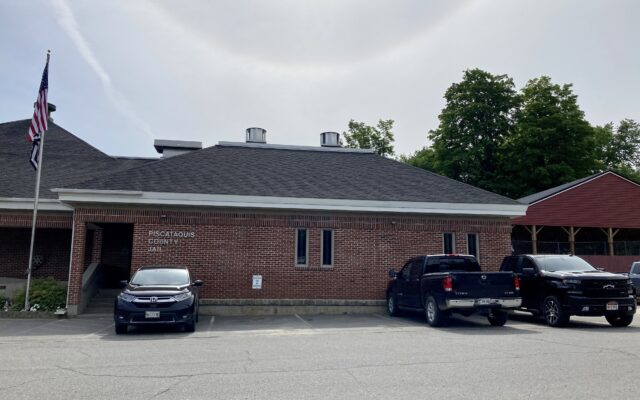
Piscataquis County may suddenly shift millions in federal aid to jail HVAC upgrades
DOVER-FOXCROFT — With about $2.75 million remaining in federal COVID-19 relief money, Piscataquis County must decide whether to fund an emergency radio overhaul or HVAC system upgrades at the jail.
The decision is clear to county emergency response workers who are adamant that they need a way to communicate in the county’s hilly and mountainous terrain, and that their decades-old system isn’t cutting it.
The overhaul to fix chronic radio problems for emergency responders, estimated to cost $5 million for the infrastructure, has been in the works since 2020. Commissioners have already paid an engineering consultant $27,000 for a feasibility study. Over the months, they have said they would dedicate American Rescue Plan Act funds to the upgrades, even denying requests for broadband funding because of the project’s urgency.
Problems with the HVAC system at the jail and other county buildings came up a year ago, when Joshua York, head of maintenance, warned commissioners that if something fails, it will be a big cost.
At a meeting Tuesday, commissioners indicated they may shift course and use ARPA funds on the HVAC upgrades. A few years ago the estimated cost of the project was $1.2 million, and the project will undoubtedly cost more to pursue today, York said.
Both projects are essential to operations within the county, but there is only about $2.75 million of the county’s $3.2 million in ARPA funding remaining. Tuesday’s meeting revealed that plans to fund the radio upgrades are likely shifting, which leaves the project in limbo. The cost to upgrade the HVAC system at the jail also remains a question.
“This is where the commissioners are at,” Chairman Andrew Torbett. “We’ve got a $5 million project to jump into, and there are no ARPA funds for that, but we need to do it. … We’ve got $2 million worth of ARPA funds that are basically spoken for and going to get used up. Moving forward, we’ve just got to look at our options.”
The Piscataquis County Emergency Management Agency requested a little more than $5 million in congressionally directed funding last month, which commissioners are counting on to fund the radio project.
County Manager Michael Williams suggested last month that the county may need to go to voters with a bond proposal, and the idea came up again Tuesday.
Brownville’s fire chief said commissioners might find there is support for the project because communities realize that emergency personnel need adequate equipment to do their jobs.
Jaeme Duggan shared highlights from a radio system planning review from the Federal Emergency Management Agency and CISA, the nation’s cyber defense agency. They assess the consultant’s work and make recommendations on best practices while considering geography, sizes of departments and other factors.
The major takeaway of the positive report was that a dual-ring microwave system and simulcasting are considered best practices for this area, said Duggan, the county’s emergency management director. The agencies also recommended training, system maintenance and establishing standard operating procedures, which are formal guidelines for emergencies.
It was apparent during Tuesday’s meeting that the parties involved were not all on the same page.
“There seems to be some confusion about T-Mobile,” Torbett said, referring to push-to-talk radios, or so-called rugged phones, part of an experiment in the county. “The commissioners were under the impression that T-Mobile was going to be a long-term answer for us.”
While a land mobile radio system is considered best practice for public safety, the devices could be an alternative to leasing space on two cellular towers, which is an exorbitant amount, Duggan said. Emergency personnel are testing the coverage of the devices now to see if this option could offset costs.
“We don’t want two systems,” said Dover-Foxcroft Fire Chief Brian Gaudet, noting fire chiefs would prefer to stick to the $5 million project. “We don’t want cell phones. We want a radio system. If those two towers aren’t an option because of the price, we’ve got to go down different avenues and figure out a solution.”
There are a few reasons for this, including the need to communicate radio-to-radio with partners at other agencies within Piscataquis County and around the state, said Shawn Mitchell, Brownville’s fire chief.
Mitchell noted portable radios are designed to work for emergency responders, so they can be used in environments with high heat and operate even when a person is wearing gloves. Duggan told commissioners previously that the military-spec phones are water- and dust-resistant.
“I think Jaeme [Duggan] is trying to do kind of an impossible task,” Sheriff Robert Young said. “It’s $5 million and in our county that’s a huge amount. You look for ways to lessen the impact. I also do have concerns about using a private service for public safety.”
Gaudet suggested creating a radio committee with a mix of emergency responders who would work closely with Duggan’s agency. This will get ideas moving forward, he said. Duggan was receptive, noting the report recommended forming a users group.